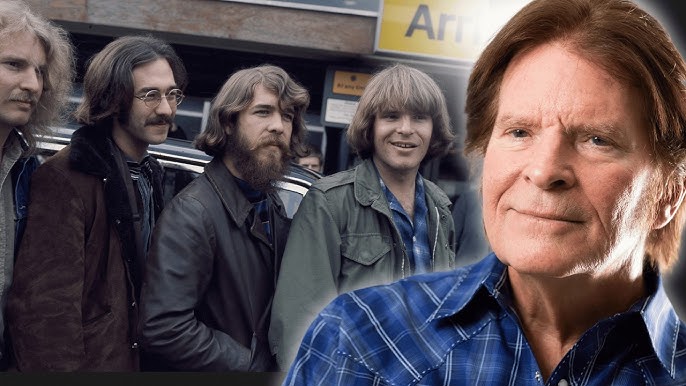 Creedence Clearwater Revival (CCR), one of the most influential rock bands of the late 1960s and early 1970s, was undone not by declining popularity but by deep internal conflicts—primarily between the band’s creative leader, John Fogerty, and his brother Tom Fogerty. Although CCR produced timeless hits such as *”Fortunate Son,”* *”Proud Mary,”* and *”Bad Moon Rising,”* the animosity between the brothers ultimately tore the group apart, leaving a legacy of what could have been.
Creedence Clearwater Revival (CCR), one of the most influential rock bands of the late 1960s and early 1970s, was undone not by declining popularity but by deep internal conflicts—primarily between the band’s creative leader, John Fogerty, and his brother Tom Fogerty. Although CCR produced timeless hits such as *”Fortunate Son,”* *”Proud Mary,”* and *”Bad Moon Rising,”* the animosity between the brothers ultimately tore the group apart, leaving a legacy of what could have been.
John Fogerty was the driving force behind CCR, serving as the band’s principal songwriter, lead vocalist, and guitarist. However, his creative control created tensions, particularly with his older brother Tom, who initially played rhythm guitar and hoped for more artistic input. Tom grew increasingly frustrated as John monopolized the songwriting and direction of the band, leading to a power struggle within the group.
The friction reached a breaking point by 1971, when Tom left the band following disputes over leadership. Though John’s dominance produced some of CCR’s biggest hits, it also alienated the other band members—Stu Cook and Doug Clifford—who sided with Tom in seeking more creative control. After Tom’s departure, the remaining members continued briefly as a trio, but the magic of their earlier collaborations was lost. Their final album, *Mardi Gras* (1972), was marred by disjointed contributions, reflecting the internal strife that had overtaken the band.
By the time CCR disbanded later in 1972, the relationships within the group were irreparably damaged. Tom and John’s estrangement became public, with years of bitterness and unresolved grievances lingering even after Tom’s death in 1990. Tom reportedly felt betrayed by John’s refusal to reconcile, and John later expressed regret over not mending their relationship while his brother was still alive.
The band’s story remains a cautionary tale in rock history: how ego, control, and unresolved conflicts can dismantle even the most talented of groups. While the Fogerty brothers’ feud deprived fans of CCR’s full potential, the music they created endures, cementing their place in rock-and-roll history despite the fallout.
Though John Fogerty has gone on to have a successful solo career, the shadow of CCR’s collapse looms large over his legacy. Even today, CCR’s break-up serves as a painful reminder that success does not always equate to harmony, and that personal conflicts can unravel even the most tightly-knit bands.
